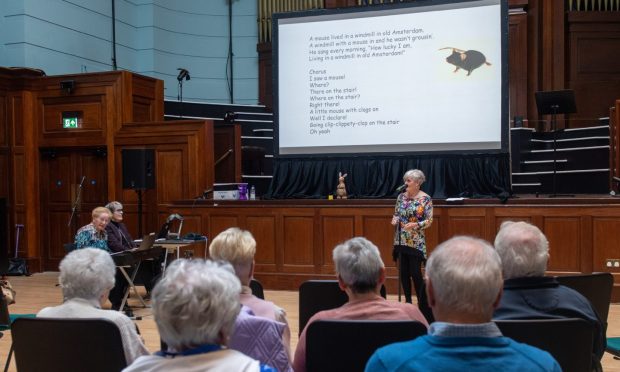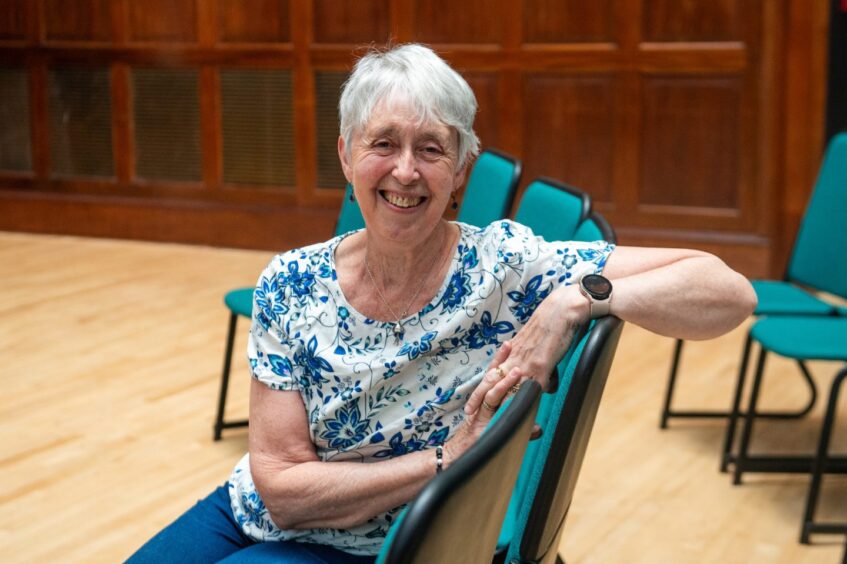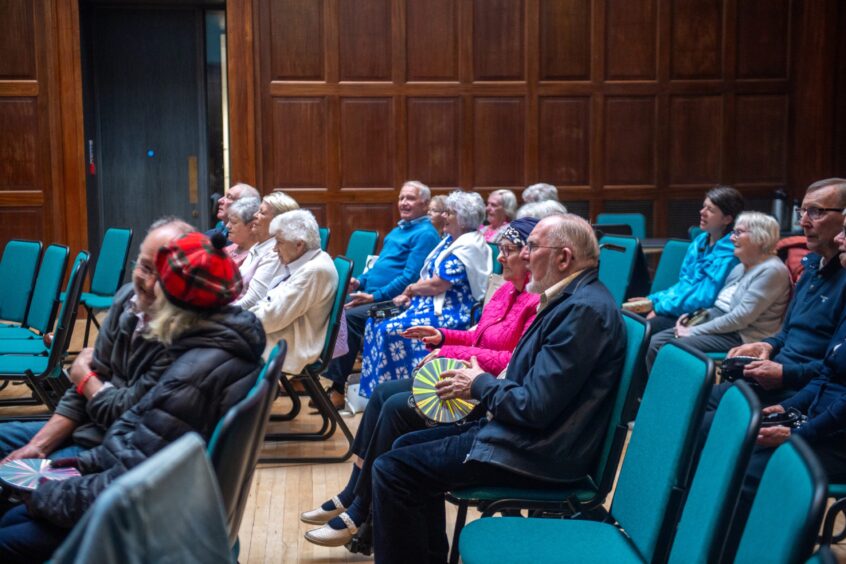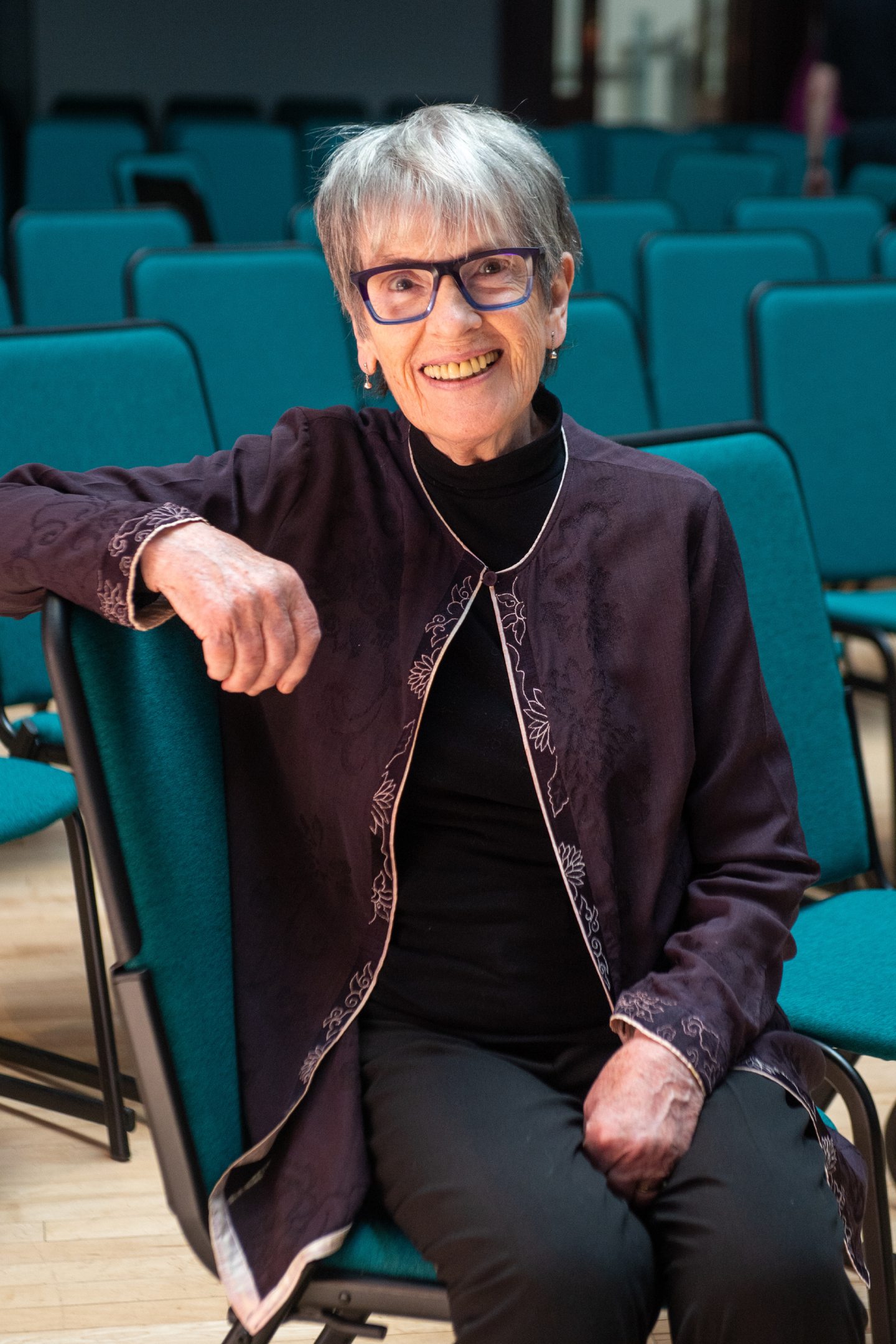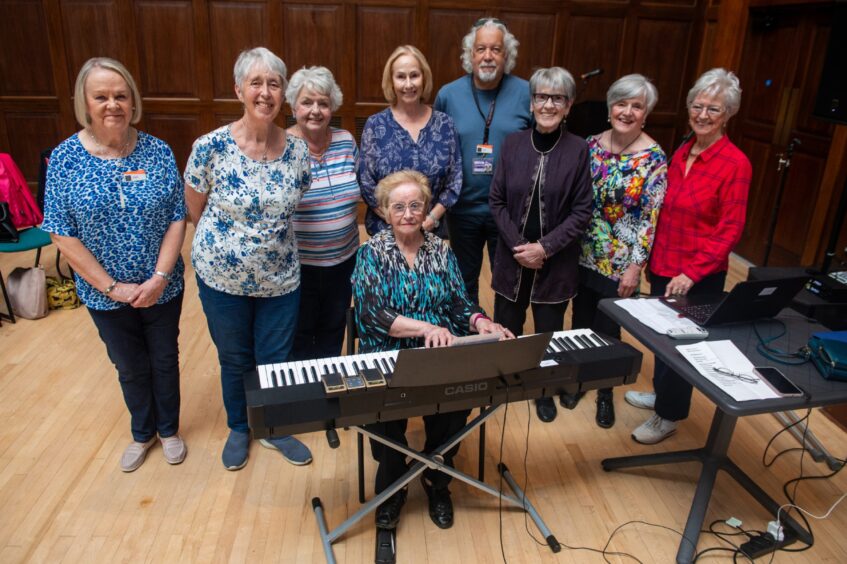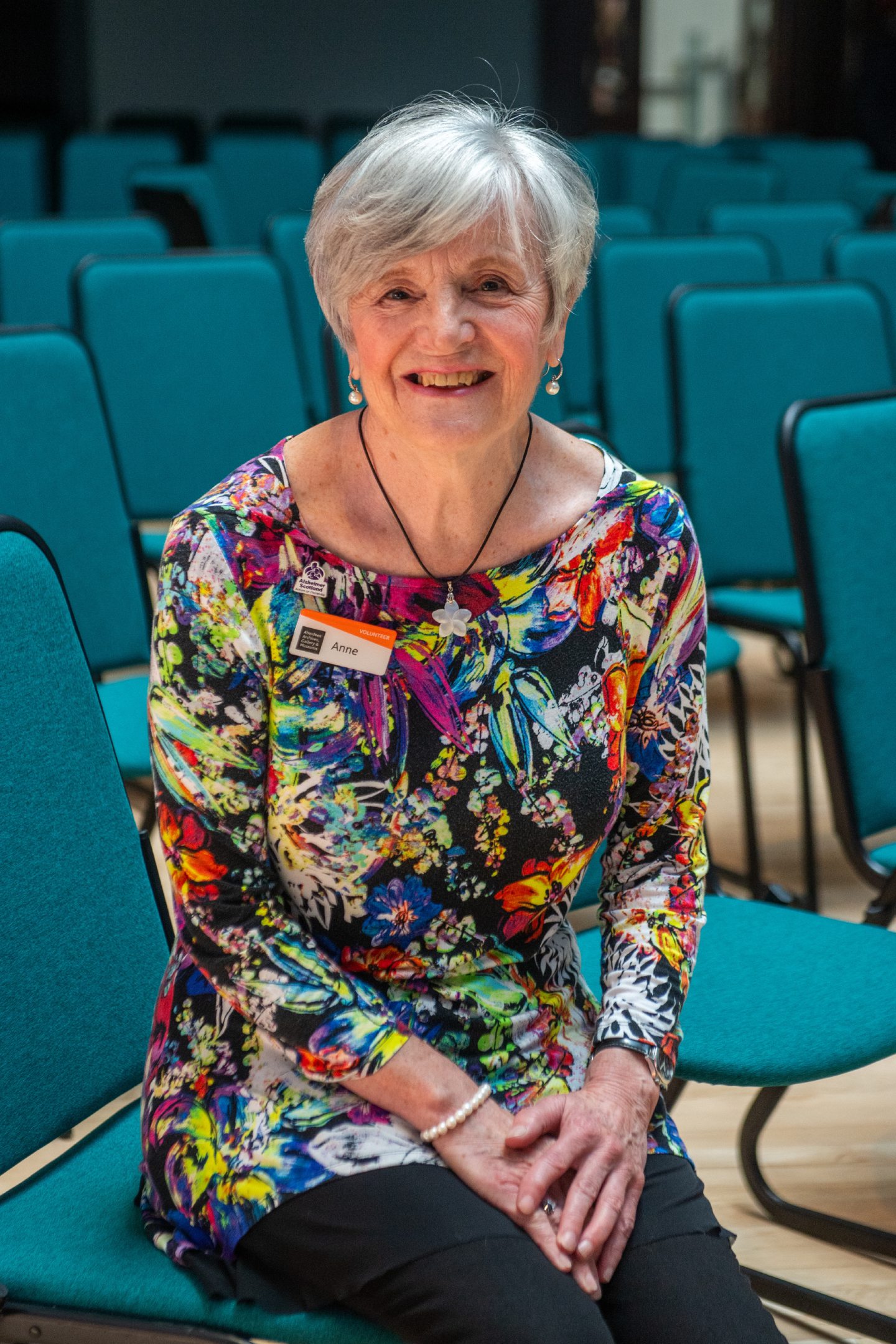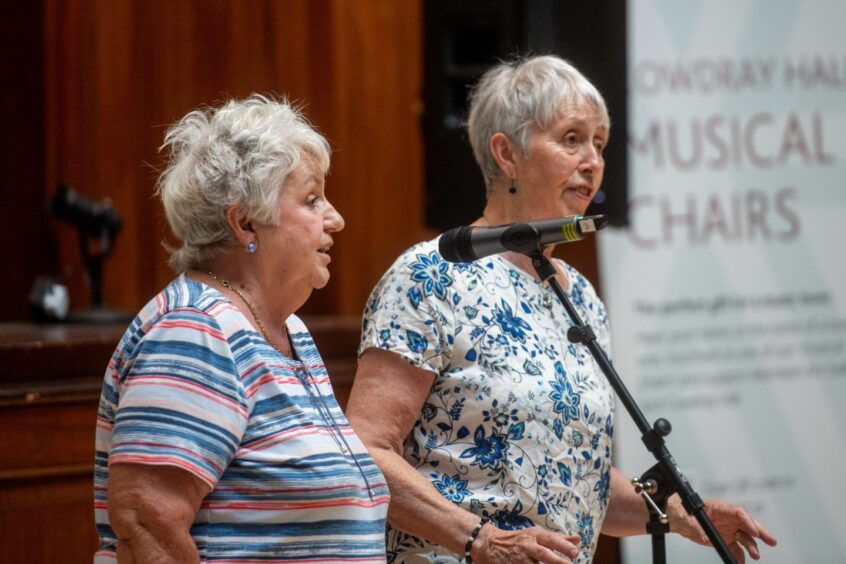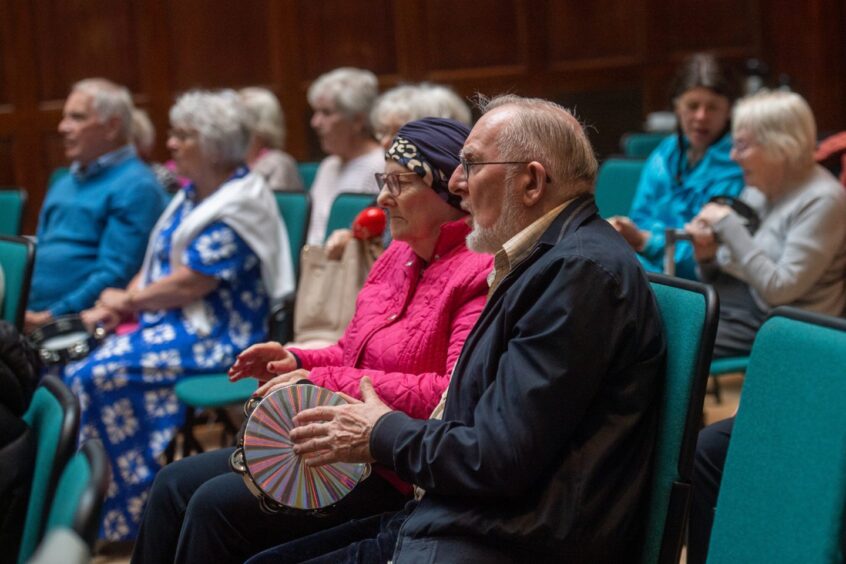A Doric rendition of Do-Re-Mi fills Cowdray Hall during one of the sessions hosted by Musical Memories.
The volunteer-run singing group welcomes people living with dementia to the space at at Aberdeen Art Gallery every fortnight.
Each time they meet, friends and family members see their loved ones being “uplifted” by music.
“It’s for the moment,” said Muriel Knox. “It’s not a magic cure, nobody is pretending that.”
As one of the original members, Muriel has played a key role in keeping Musical Memories going for the past 14 years.
“We started with four experimental sessions with people living with dementia who were handpicked by Dementia UK.
“I was chaplain for Cornhill Hospital at the time and we held the sessions at the health village in a room full of mirrors – it wasn’t the best place for people with dementia.”
The running of the group and its location may have changed over the years, but the dedication of the volunteers has been never wavered.
“We’ve all got a heart for what we’re doing,” Muriel added.
Musical Memories welcomes people living with dementia
Musical Memories gives its singers the opportunity to live in the moment.
“It doesn’t mean it makes things better for them when they go home but I like to think it probably does,” fellow volunteer, Jean Dodds, said.
The group also provides carers – often family members and friends – the opportunity to talk to other people with similar experiences.
Jean knows the benefits of this firsthand.
“My late husband, Keith, had been very recently diagnosed with dementia when we came along,” she shared.
“That first session was the first time I had been referred to as his carer rather than his wife.
“We were singing Danny Boy and I just started crying. I realised it was also very important for me to come. And, that’s why I still do.
“Music brings out emotions that are very important.”
Seeking more members and volunteers
The volunteers take it in turns to lead the themed sessions which each feature a variety of songs, from old favourites to musical classics.
“Everyone is so committed,” Muriel said. “Once they start, they don’t take a break – many have been here for years which is wonderful.”
Each session starts with a welcome song written specifically for Musical Memories and ends with We’re No Awa’ Tae Bide Awa’.
“In the middle, we just sing,” Muriel said.
Fellow volunteer Anne Cargill got involved more than a decade ago after retiring from her job in the health service.
“People often say they’ve been looking for something like this and it ends up really helping them and their families.
“We get as much out of it as the people who come along, and we’re always looking for more volunteers.”
Councillor Martin Greig, who is a long-time supporter of the group, praised the volunteers’ “energy and enthusiasm”.
He added: “The social benefits for these kinds of gatherings cannot be underestimated – they provide comfort and can stimulate conversations.
“Not just for the person with the diagnosis but their friends and family as well, especially those who might feel isolated.
“People with similar experiences and backgrounds can support each other.”
Dementia-inclusive groups across the country
Musical Memories warmly welcomes anyone living with dementia and their carers, while those based outside of the city centre looking for a similar group can find an alternative group through Luminate.
The organisation, which created the Dementia Inclusive Singing Network, has made an online map of groups working in an inclusive way for people living with dementia.
Luminate also offers resources and training to choirs and singing groups across the country.
Morven McIntyre, network co-ordinator, said that research consistently showed that singing is good for people living with dementia and their carers.
“Apart from the simple pleasure of singing and responding to music, being part of a community group encourages a sense of wellbeing, can aid communication and offers structure,” she said.
“Working for Luminate, I have taken part in sessions with dementia-friendly singing groups.
“There was so much joy in the room and it was clear how much each participant felt valued by their peers and song leaders as they sang both new and familiar songs together.”
